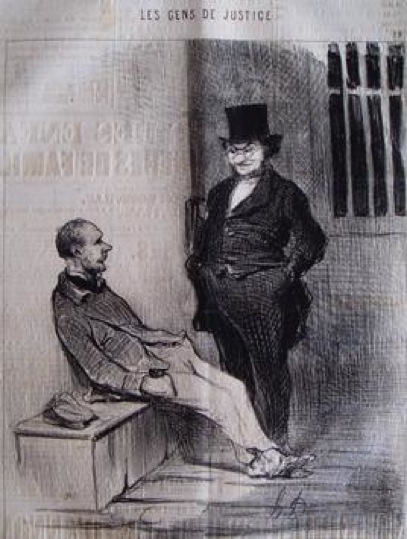All ruling classes are based on merit, Jack. The principle was as true of Nazi Germany as it was of Louis XIV's France. The question is, how do you define merit; of what does merit consist?
- Lewis Lapham, The American Ruling Class (5:25-5:40)In this speech at Harvard, Walter Benn Michaels makes the argument that "liberals" should be more concerned about income inequality/class than about race/diversity. The argument is basically that (elite) universities have been successful at achieving gender/ethnic/racial diversity but have completely ignored what some would call socioeconomic diversity: the vast majority of students at elite universities are rich, or at least not poor:
In the Q & A from the Harvard talk, Michaels mentions that once inequality of access to elite merit-generating institutions is cured, "we" will be able to have a "conversation" about meritocracy itself; evidently meritocracy itself is off limits until the there is a reasonably legitimate version of meritocracy to challenge. This move mimics the moves left-wing class-before-race types accuse anti-racists of making to the extent that it forecloses the main issue--inequality--in favor of some kind of intra-capitalist tinkering that effectlvely operates to justify the underlying capitalist/neoliberal framework.
Michaels argues that the socioeconomic profiles of members of elite merit-recognizing/generating institutions undermines meritocracy's crucial justificatory function:
Insofar as our social arrangements are justified--as we justify them to the people who benefit from them, and we justify them to the people who don't benefit from them by saying, 'you had a chance. If you did not succeed, it is in some important sense your responsibility that you did not succeed, it's something about you.' Insofar as that serves as an important tool of justification for us--and it serves as a very important tool of justification for us--our society has to make some kind of effort to produce the equality of opportunity that now we pay lip service to but absolutely, completely ignore. (Michaels lecture, 20:00-20:41)So if, as it appears, what is central to this project is protecting this meritocratic justification of inequality from subversion or questioning by those against whom it is deployed, I fail to see how this project is at all situated on the left. Why should those opposed to inequality be providing support to its most important justificatory mechanism? And who is the "us" for whom this "serves as a very important tool of justification"? And how is Michaels' position anything but an aesthetically-liberal reformulation of the classic right-libertarian argument for inequality exemplified by Robert Nozick in Anarchy, State, and Utopia. In perhaps the least surprising coincidence in the history of coincidences, Michaels brings out (Michaels lecture, approx. 18:00-20:00) a folksier "LBJ version" of Nozick's Wilt Chamberlain example which explains justified unequal distributions with reference to consumers being willing to pay more to watch Chamberlain play basketball because he's really good at it.
There's something particularly annoying about Michaels' ostensibly self-deprecating references to him not being able to run well, which I think has something to do with its use in the good old racist line that "the Blacks are good at sports and we white guys don't begrudge them for it, so why can't they realize the we white guys are better at thinking than them." And hey, here's our friend Pat Buchanan making this argument (in the context of this past summer's disgusting "national conversation" about affirmative action/Sonia Sotomayor/white firefighters), right around the 12:00 mark of this Rachel Maddow video:
It seems pretty obvious that his project of criticizing "diverse elites" in favor of a deserving, neglected working class has strong right-wing political coordinates; just review Buchanan's argument above, or the 2008 Democratic primary contest ("hard working white people" etc.), or really pretty much everything else anyone says in mainstream American political discourse.
I am getting tired of writing so I will skip to the conclusion: criticism of inequality is properly aimed at elite institutions themselves, and not at the class composition of those who enter elite institutions. Wherever they come from, the leave as elites who occupy, depending on just how elite the institution is, either the top 10%, 1%, or. 01% of the distribution of power, and if you're concerned about inequality, well, there's your inequality for you, and you are probably going to somehow have to get beyond unquestioningly accepting radical inequality so long as it conforms with whatever assessment of "merit" you idiosyncratically determine to be objectively valid.
Afterthought. The following citation of (ha) Friedrich Hayek by Slavoj Zizek (not that Zizek's thoughts on race aren't highly problematic) provides interesting contrast to Michaels' idea that social stability depends on the poor understanding that their poverty is their own responsibility.
Friedrich Hayek knew that it is much easier to accept inequalities if one can claim that they result from an impersonal blind force, so the good thing about "irrationality" of the market success or failure in capitalism (recall the old motif of market as the modern version of the imponderable Fate) is that it allows me precisely to perceive my failure (or success) as "undeserved", contingent... The fact that capitalism is not "just" is thus a key feature that makes it palpable to the majority (I can accept much more easily my failure if I know that it is not due to my inferior qualities, but to chance).It seems to me that both these justificatory processes are going on at the same time despite their contradiction--that those who justify existing distributions of power and disability do so sometimes for Michaels' reason (most likely when meritocratic social hierarchies are operating to their benefit) and sometimes for Hayek's (vice versa). So at whom is Michaels' justification aimed? Probably at those already-privileged people who are occasionally embarrassed by thinking that their privileges were not attained by merit, and who would like to have better evidence of just how deserved their privileges are.
But really, fuck these guys.













No comments:
Post a Comment